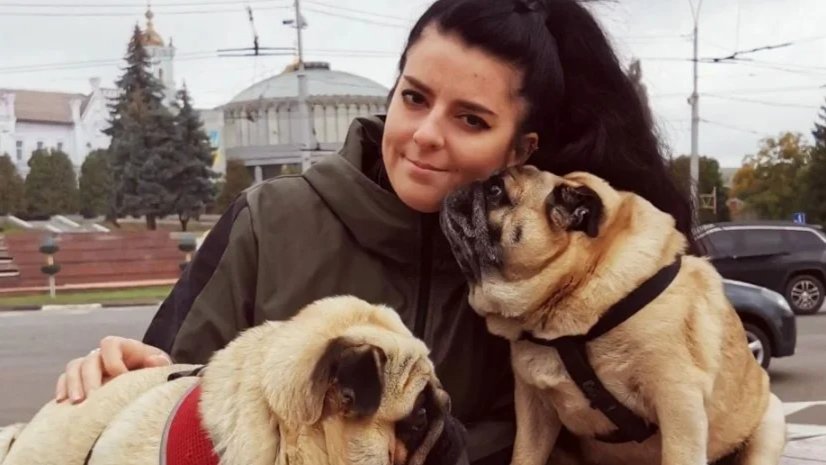Russia attacked the city of Sumy in northeastern Ukraine with four Shahed drones on 3 July. The attack killed three civilians; 22 more people were injured. The Iranian kamikaze UAVs destroyed several storeys of a residential block and damaged a neighbouring house, as well as a Security Service office nearby.
Nadia, 28, used to live on the fourth storey of that house, together with her parents, two pugs, and two cats. On that dreadful day, the whole family was at work. When they returned, they found out that a Shahed both destroyed their home and claimed the lives of their pets.
Keksik and Anechka, the pugs, and Monica the cat are presumed to be dead as their bodies still haven’t been found. On the fourth day of the rescue operation, the Emergency Service managed to retrieve Murchik, the second cat, from under the rubble. He had been there all this time with no water or food.
Novaya-Europe spoke to Nadia about how the Russian military brought death into her home, claiming the lives of her beloved pets.
Nadia Valiukh was born and raised in Sumy, Ukraine. The Sumy region is on the border with Russia: it was one of the first Ukrainian regions that were hit by the Russian forces in February 2022. Nadia’s brother and husband signed up for military service after the war had started, both eager to defend their country.
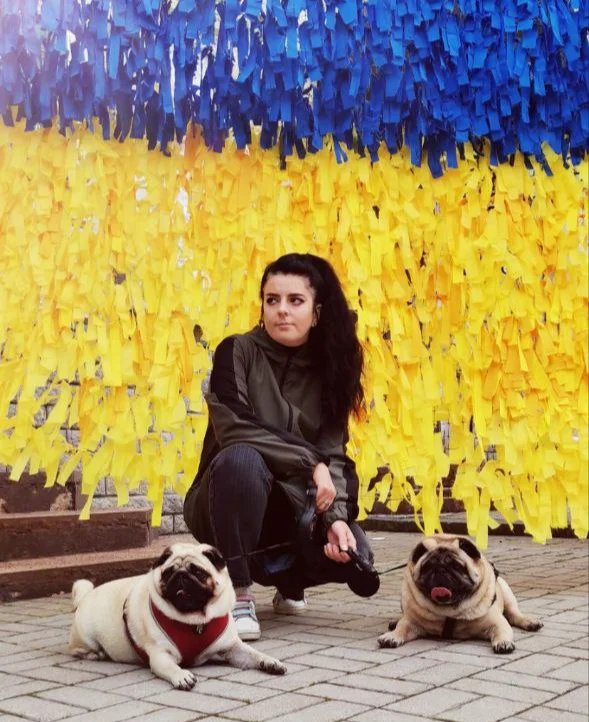
Nadia and the pugs. Photo courtesy of Nadia Valiukh
Nadia lived in the flat with her parents, two pugs — Keksik and Anechka — and two cats, Murchik and Monica. The family loved their pets just as if they were their own children. Nadia has been working in a pet store for the past nine months. Her pets were the reason she applied for the job.
“But now I think to continue working there would be torture for me. People with dogs come around all day. I won’t be able to handle this. It’s because we saved Murchik, but we failed to save our pugs and the other cat. It breaks my heart,” she says.
Nadia used to run a pet page on social media: she started posting videos of her pugs and cats on TikTok over a year ago, as well as on Instagram.
“I knew that in times like these, when there’s a war on, it’s important to appreciate every single moment. My dad and I tried to capture our pugs in those photos and videos. You never know if tomorrow is going to come at all,” Nadia said.
The day of Russia’s attack on Sumy
On Monday, when the Russian military attacked Sumy with drones, Nadia had a day-off, but went to work anyway as her co-worker asked her to take their shift. Nadia’s mother was also not supposed to come into work that day, but had a change in her schedule as well.
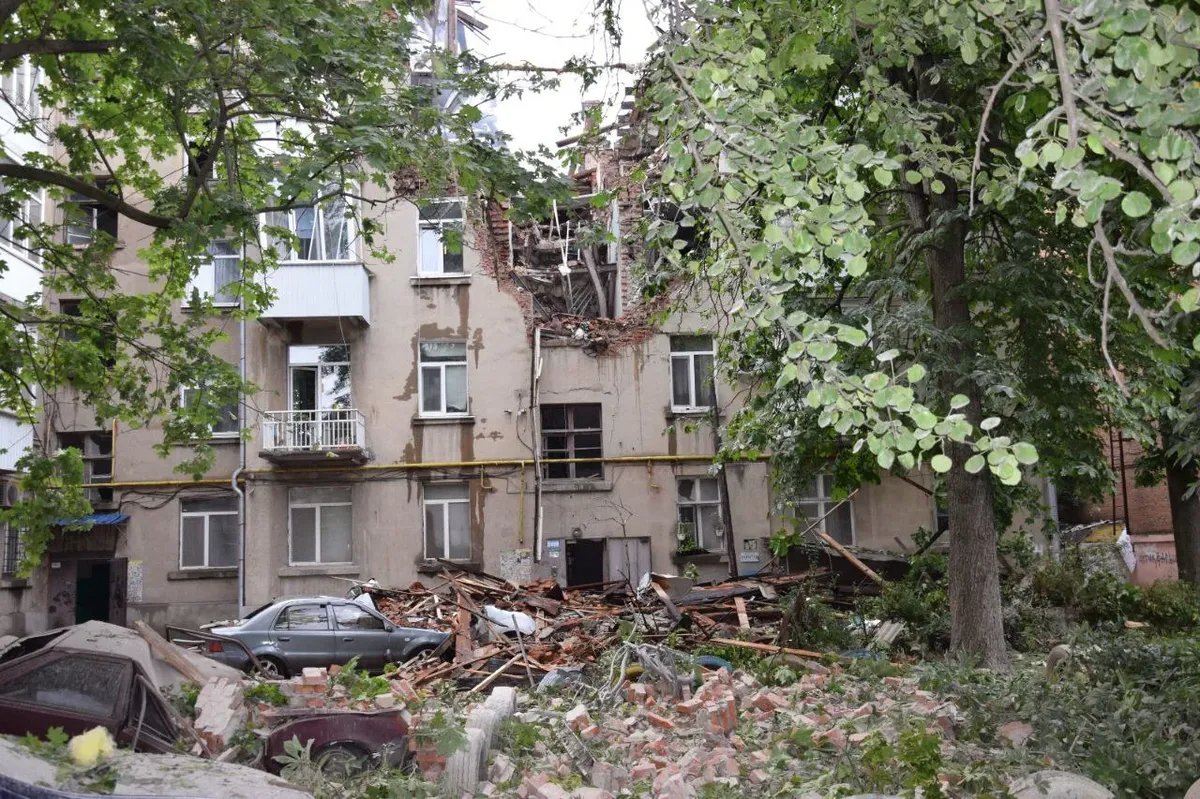
The aftermath of the Sumy attack. Photo: Sumy regional administration
Nadia saw her parents off to work and went outside to walk her pugs. It was raining.
“I remember that when we got back home, I put their leashes to dry out on the balcony for the evening walk. I gave them a wash, fed them, and had my own meal, too. Then I stayed on the couch for a while, and both of them were on the bed-foot.
Then I recorded a video message for a friend of mine. I told her: ‘God, I wish I didn’t have to go to work today, I’d rather stay here and take a nap together with them.’ This is how that day started. My shift was going fine, but then the Shaheds attacked our city [at 11 AM]. Shortly after, my co-workers shared a picture [of the destroyed house section] in our chat, unaware that it was the house I lived in. So, I locked the store and ran back home.
What I saw there was a completely deserted street, although it’s the high street of our city that has crowds of people and many cars on a usual day. There were so many police officers down there, and all the stores were closed. I crouched under the police tape to reach the area in front of our flat and started crying and yelling that our pugs and cats were trapped there, begging to be allowed inside.
The police tried to make me leave the area, saying: ‘It’s dangerous here, don’t worry, they are relatively safe there’.
The air raid alert lasted for a very long time that day. Everyone expected follow-up attacks, so the police would just force people away. Around 20 minutes later I met with my parents, but the police were just trying to chase us off: go home, they said, there’s nothing to look at. So I asked them: ‘What do you mean ‘go home’? It was my home that was hit. Hear me out, I am now homeless. Where do we go? We’ve got pugs and cats inside.’
So, I was yelling at them, trying to prove I’m not just a loitering passer-by. I live there, I have — say, my kids trapped inside, don’t you understand?
If the attack had simply hit our empty flat with no living soul in it, of course we would be worried. But we wouldn’t be worrying ourselves to death. The flat and the items inside can be bought and sold anyway. It’s just that we treated our pets like people. Each had their own personality… My mum and I stayed there until eight in the evening. My brother and my husband took leave from the military and came to see us. We reunited, but without the pets,” Nadia recalls.
Together with her family, the young woman was waiting for a rescue crane. Their section of the residential block only had the bottom two storeys of it left, while their flat used to be on the fourth storey. The rescuers wouldn’t let them inside, however, same as other residents of the destroyed flats.
Support independent journalism
Rescuing Murchik the cat
The following day, Nadia’s brother and father were lifted to their destroyed flat in a cradle car. The rescuers found Anechka’s leash that Nadia had put on the balcony before, with the name and address tag still on it. “Now I carry it around with me everywhere. It makes me feel a bit better to know it was her leash. This way I sort of feel her beside me, I’m very attached to this thing. Keksik’s leash was nowhere to be found, sadly,” Nadia says.
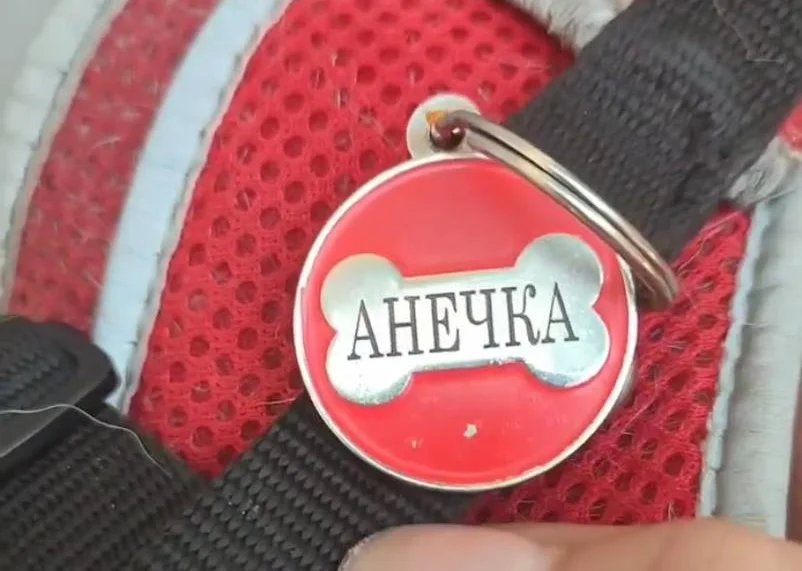
Photo courtesy of Nadia Valiukh
Almost nothing was left of the flat: “My brother’s room went down in flames the day after the attack as the fire from our neighbours’ flat burnt it down. My room did not burn down, but there’s almost nothing left of it. The ceiling and the roof collapsed into my room.
Standing outside, I saw that it was just the sky in the place where the ceiling used to be.”
At 11 AM on 6 July, the rescuers managed to retrieve Murchik from under the rubble. He spent four days without food or water in the room of Nadia’s parents that survived the explosion.
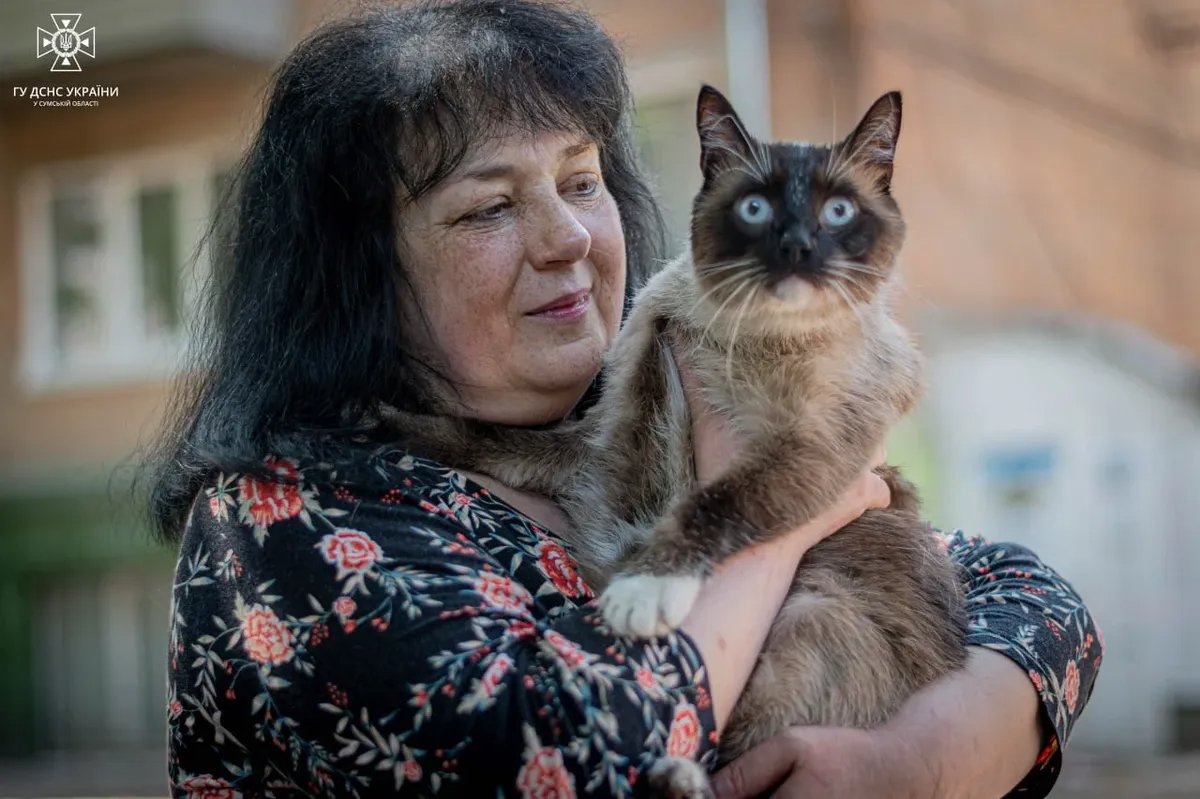
Murchik. Photo: Ukraine’s State Emergency Service
“The rescuers retrieved him,” Nadia recalls with a smile. “I was holding my phone, so I shot this on video. We were crying of happiness and shock. It was so difficult to survive in such a flat after the explosion and the fire that followed… There was carbon monoxide there as well, but he made it. He’s such a good boy.”
Nadia says the cat was in shock, but now he’s recovering little by little. “He was totally a house cat, he only saw the outside from the window before, as if it was on TV,” she explains.
‘They were like children to us’
The oldest of the pets who went missing after Russia’s strike was Keksik, a pug ten years of age. “The younger pug, Anechka, is his daughter. He is four years old,” Nadia says. “Her mother died the next day after she gave birth. So, we had to nurse the girl from day one. She was literally like a child to us. We don’t perceive them as dogs, they are our children. Anechka used to be my bonne amie: she used to sleep next to me, and we were always together.”
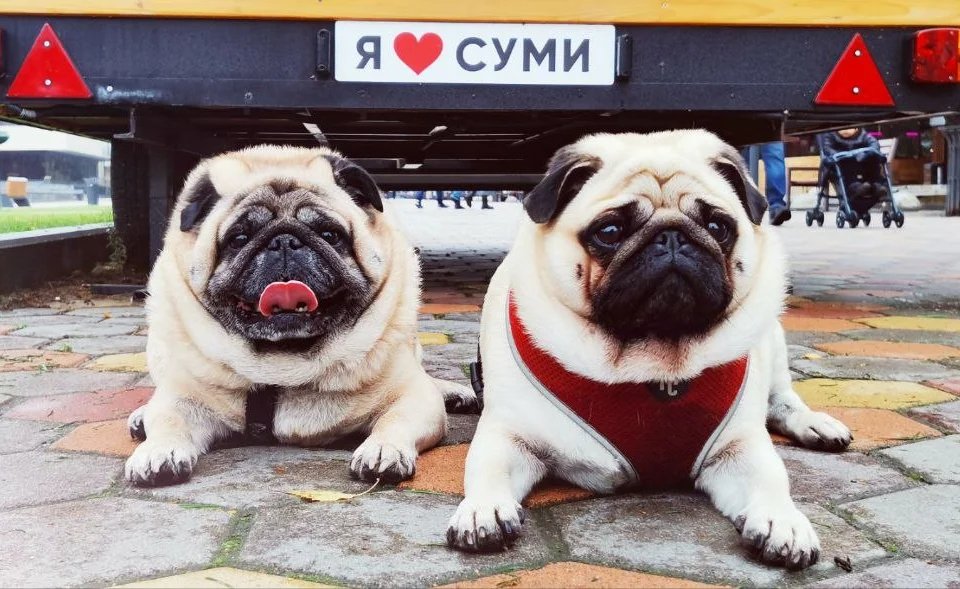
Keksik and Anechka, the pugs. Photo courtesy of Nadia Valiukh
Monica, the cat, was nine years old, and she spent eight and a half in Nadia’s family. She used to belong to a neighbour of Nadia’s grandma, but in that home, she was receiving little to no food and water, so the young woman took her in.

Monica the cat. Photo courtesy of Nadia Valiukh
‘We try to hold on for each other’s sake’
The young woman says her parents are under a lot of stress, but do their best to hold on. “We force each other to eat at least once or twice a day, just to stay on our feet. My parents are totally in love with the pugs. And Murchik the cat is mum’s darling, he’s always by her side. He keeps her calm. After we saved him, we never left him alone even for a minute. Even when he stays with my mum and she needs to go out for a moment, he starts crying,” Nadia says.
She was told that the destroyed house would be completely demolished. Nadia believes it is the right thing to do: “Erecting a house there is so scary now. It’s dangerous even to stand next to it now. We can’t let this disaster happen again, even without Russia’s doing.”
The most important thing for her and her family is to get the dead bodies of the pugs and the cat from the rescuers in order to arrange a funeral. It is currently unknown whether this is possible at all.
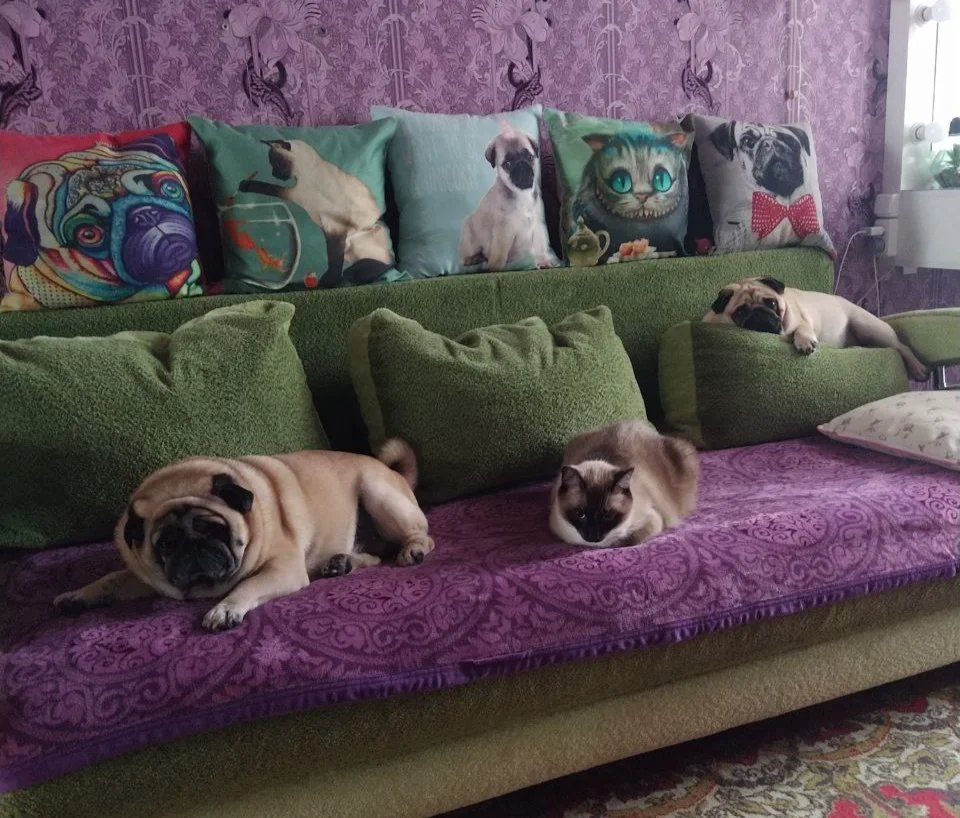
Photo courtesy of Nadia Valiukh
“I thank the rescuers for retrieving some of our items. They grabbed all they could, both my things and those of my parents. But I couldn’t care less about those. You can buy new ones any minute. We spread the word, and different people, both our friends and complete strangers, started bringing all sorts of items for us. We couldn’t save our pugs and our cat, and our hearts hurt so much,” was what she said.
Nadia mentions she never could imagine a thing like that could happen to her family: “Although I had nightmares of jets and missiles flying above me. When the Shaheds were here on Monday, I never thought they could hit our house. We were afraid to think of it. So, we just hoped and believed we’d be safe.”
Join us in rebuilding Novaya Gazeta Europe
The Russian government has banned independent media. We were forced to leave our country in order to keep doing our job, telling our readers about what is going on Russia, Ukraine and Europe.
We will continue fighting against warfare and dictatorship. We believe that freedom of speech is the most efficient antidote against tyranny. Support us financially to help us fight for peace and freedom.
By clicking the Support button, you agree to the processing of your personal data.
To cancel a regular donation, please write to [email protected]
